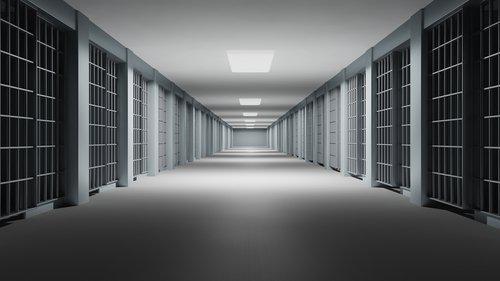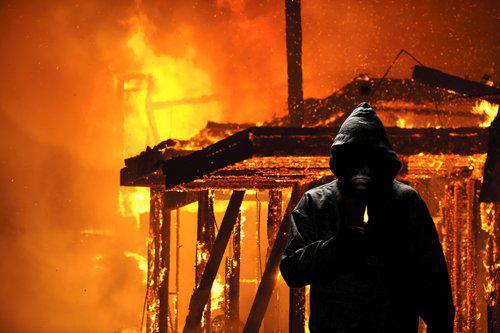Recent Blog Posts
Defending against Sexual Assault
 Charges of sexual assault are very serious and should not be taken lightly. Aside from their seriousness, they are also embarrassing and carry stigma that will follow you the rest of your life, even if you are innocent of the accusations.
Charges of sexual assault are very serious and should not be taken lightly. Aside from their seriousness, they are also embarrassing and carry stigma that will follow you the rest of your life, even if you are innocent of the accusations.
Wisconsin law has different categories of sexual assault, but it is generally defined as non-consensual sexual intercourse, through the threat of force, violence, pregnancy or that causes great bodily harm. The most commonly known form of sexual assault is rape. Sexual assault charges carry hefty penalties depending on the degree:
- First degree sexual assault is a Class B felony, which carries up to 60 years in prison;
- Second degree sexual assault is a Class C felony, which carries up to 40 years in prison and/or up to $100,000 in fines;
- Third degree sexual assault is a Class G felony, which carries a prison sentence of up to 10 years and up to $25,000 in fines, or both; and
The Crime of Battery in Wisconsin
 Whether your team wins or loses, highly anticipated sporting events often make people do things and say things that are out of their general character. In addition to spikes of OWI arrests after large sporting events, there is often a measurable increase in crimes of battery. An example of this occurred recently after the Wisconsin-Indiana football game.
Whether your team wins or loses, highly anticipated sporting events often make people do things and say things that are out of their general character. In addition to spikes of OWI arrests after large sporting events, there is often a measurable increase in crimes of battery. An example of this occurred recently after the Wisconsin-Indiana football game.
The Incident
The incident occurred after the October 3rd game between the Hawkeyes and the Badgers, at which the Hawkeyes defeated the Badgers by a score of 10-6. As a 15-year-old boy wearing Iowa Hawkeyes apparel was leaving the stadium with his friends, a Wisconsin fan allegedly punched him in the face. According to the boy, he was “mildly” teasing his friend (a Badgers fan) about the Iowa win when the man approached him, punched him in the face, and then fled into the crowd. The police have not caught the man.The UW-Madison Police Department has classified this as a battery, and has asked the community for help finding the attacker. Although the boy suffered only minor scrapes and bruises, the police department issued a statement priding Badgers fans as being respectful to all fans, and noting that it is great sportsmanship that makes Badger game days one of the most well-known traditions in the nation.
Hit and Run Laws in Wisconsin
 Did you know that if you are involved in a car accident, even if you are rear-ended, sideswiped, or otherwise not at fault, it is your legal duty to stop immediately? Once you stop, there are other legal requirements you must follow. Failure to comply with the duties imposed by Wisconsin law after an accident can result in serious trouble. You will be charged with hit and run, which can be either a misdemeanor or a felony, depending on the severity of the accident. At worst, it is punishable with jail time and steep fines.
Did you know that if you are involved in a car accident, even if you are rear-ended, sideswiped, or otherwise not at fault, it is your legal duty to stop immediately? Once you stop, there are other legal requirements you must follow. Failure to comply with the duties imposed by Wisconsin law after an accident can result in serious trouble. You will be charged with hit and run, which can be either a misdemeanor or a felony, depending on the severity of the accident. At worst, it is punishable with jail time and steep fines.
What Are Your Legal Obligations after an Accident?
Wisconsin law imposes several requirements on drivers after an accident. Whether you believe yourself to be at fault or not, the law requires you to stop your car immediately if you have been involved in an accident with another vehicle, bicycle, or pedestrian. You must do this even if the accident is minor, and there is no bodily injury or even visible property damage.
Despite Crime Rate Decrease, Majority of Americans Think It Is Increasing
 Perception is a funny thing; rather than being based upon facts, it is the thoughts and beliefs of one more individuals. And it is often incorrect. Case in point: 70 percent of Americans recently reported that they believe crime is rising, but statistical analysis shows that, over the last decade, crime rates have dropped. Such information shows there is a major disconnection between the perception of crime in the U.S. and the reality.
Perception is a funny thing; rather than being based upon facts, it is the thoughts and beliefs of one more individuals. And it is often incorrect. Case in point: 70 percent of Americans recently reported that they believe crime is rising, but statistical analysis shows that, over the last decade, crime rates have dropped. Such information shows there is a major disconnection between the perception of crime in the U.S. and the reality.
Violent Crimes in the United States
Each year, the U.S. Department of Justice, Bureau of Justice Statistics, compiles the crime rates for America. In regard to violent crimes, such as rape, sexual assault, robbery, and assault, the overall rates have declined drastically going from 80 victimizations per 1,000 persons in 1994 to 19 per 1,000 in 2010. In the state of Wisconsin, violent crimes have increased slightly, overall, going from 13,748 incidents to 16,714 in the same time period, but sexual assault and burglary crimes have declined.
New Study Could Change How Touch DNA Is Used in Criminal Cases
 Beginning in 1986, human DNA testing began to revolutionize the criminal justice system by providing law enforcement and the courts with far better identification evidence by which to prove either the innocence or guilt of a suspect. However, DNA evidence and matches are not infallible; and a recent study suggests that we must, once again, consider just how valid such evidence against an individual may be.
Touch DNA Sensitivity Today
DNA is found within every chromosome and cell of our bodies. It can also be transferred from skin to a surface; this is known as “touch DNA.” Pulled from everything from guns to doorknobs, touch DNA is one of the most widely used forms of DNA evidence in criminal investigations. Initially, large samples were needed for testing, but technology has advanced so much that now we only need a small trace. This has both pros and cons. On the positive side, we can detect the presence of human DNA much more easily. On the negative side — as highlighted by the recent stud y— sampling may actually pick up traces of DNA through second person transfer and the risk of contamination and false match is greater.
All It Takes Is a Handshake
Two graduate students from the University of Indianapolis recently paired up with the university’s director of Molecular Anthropology Laboratory to determine if they could pick up traces of touch DNA from someone that had never touched an item (secondary DNA). Subjects from the study were instructed to shake hands for two minutes. Then, one was asked to touch a test knife. The other subject never came into contact with the test knife.
In 85 percent of the samples, researchers were able to pick up traces of DNA from individuals who had never come into contact with the test knives. It was transferred during the handshake and was left behind by the handler. The implications of this is startling and disturbing, as innocent people could be charged with crimes based on an erroneous match
Changes in How Forensic Evidence Is Viewed
Forensic scientists still do not completely understand how DNA transfers from a person to an object. Secondary transfer may not be the same during brief contact, or when touching rough objects, or when dealing with certain materials. However, this new study and the potential for cross-contamination and false positives are bound to change how DNA is used in criminal cases. It may also be quite important for those who have already been convicted based on DNA matches and other types of forensic evidence. For further reading on the need to improve various types of forensic evidence analyses utilized by law enforcement, see the 2009 study by the National Academy of Sciences, “Strengthening Forensic Science in the United States: A Path Forward.”
Facing Criminal Charges? You Need Knowledgeable and Aggressive Legal Help
When facing an investigation or criminal charges, you need an attorney that is willing to carefully examine the evidence to prepare a solid defense case. When dealing with forensic evidence like DNA, you need experienced defense counsel, who are knowledgeable both in the law and the science. Our team is comprised of highly-skilled litigators, some of whom have worked on the police force, as criminal prosecutors, justice department investigators and have science backgrounds. Schedule your consultation with one of our knowledgeable and experienced Milwaukee criminal defense attorneys by calling 414-271-1440 today.
Beginning in 1986, human DNA testing began to revolutionize the criminal justice system by providing law enforcement and the courts with far better identification evidence by which to prove either the innocence or guilt of a suspect. However, DNA evidence and matches are not infallible; and a recent study suggests that we must, once again, consider just how valid such evidence against an individual may be.
Touch DNA Sensitivity Today
DNA is found within every chromosome and cell of our bodies. It can also be transferred from skin to a surface; this is known as “touch DNA.” Pulled from everything from guns to doorknobs, touch DNA is one of the most widely used forms of DNA evidence in criminal investigations. Initially, large samples were needed for testing, but technology has advanced so much that now we only need a small trace. This has both pros and cons. On the positive side, we can detect the presence of human DNA much more easily. On the negative side — as highlighted by the recent stud y— sampling may actually pick up traces of DNA through second person transfer and the risk of contamination and false match is greater.
All It Takes Is a Handshake
Two graduate students from the University of Indianapolis recently paired up with the university’s director of Molecular Anthropology Laboratory to determine if they could pick up traces of touch DNA from someone that had never touched an item (secondary DNA). Subjects from the study were instructed to shake hands for two minutes. Then, one was asked to touch a test knife. The other subject never came into contact with the test knife.
In 85 percent of the samples, researchers were able to pick up traces of DNA from individuals who had never come into contact with the test knives. It was transferred during the handshake and was left behind by the handler. The implications of this is startling and disturbing, as innocent people could be charged with crimes based on an erroneous match
Changes in How Forensic Evidence Is Viewed
Forensic scientists still do not completely understand how DNA transfers from a person to an object. Secondary transfer may not be the same during brief contact, or when touching rough objects, or when dealing with certain materials. However, this new study and the potential for cross-contamination and false positives are bound to change how DNA is used in criminal cases. It may also be quite important for those who have already been convicted based on DNA matches and other types of forensic evidence. For further reading on the need to improve various types of forensic evidence analyses utilized by law enforcement, see the 2009 study by the National Academy of Sciences, “Strengthening Forensic Science in the United States: A Path Forward.”
Facing Criminal Charges? You Need Knowledgeable and Aggressive Legal Help
When facing an investigation or criminal charges, you need an attorney that is willing to carefully examine the evidence to prepare a solid defense case. When dealing with forensic evidence like DNA, you need experienced defense counsel, who are knowledgeable both in the law and the science. Our team is comprised of highly-skilled litigators, some of whom have worked on the police force, as criminal prosecutors, justice department investigators and have science backgrounds. Schedule your consultation with one of our knowledgeable and experienced Milwaukee criminal defense attorneys by calling 414-271-1440 today.
Source:
Technology, Privacy, and Crime: Right to Privacy Lines Blur in a Technology-Driven World
 Technology has truly become an integrated part of our lives, affecting all that we do. In fact, very few Americans ever leave their homes without some sort of electronic device in tow. For the most part, the infiltration is benign and offers enjoyment, connection, and education. But the speed at which technology has advanced does have its drawbacks, namely where the law and our right to privacy is concerned.
Technology has truly become an integrated part of our lives, affecting all that we do. In fact, very few Americans ever leave their homes without some sort of electronic device in tow. For the most part, the infiltration is benign and offers enjoyment, connection, and education. But the speed at which technology has advanced does have its drawbacks, namely where the law and our right to privacy is concerned.
What Americans Are Giving Up
At any given moment, we could be recorded on one or more cameras at a business establishment, on someone’s home security system, or even on a cell phone. Cell phones can become tracking devices, and social media accounts, which often detail almost every aspect of our lives can give away where we have been, what we have been doing, and who we were with while doing it.
State Advocacy Groups Discuss the Problematic Costs of Wisconsin Corrections Program
 Incarceration costs are a part of every state’s budget. For Wisconsin it is much higher than the national average. The state advocacy group, Wisconsin Budget Project, recently discussed those costs and why they exist. They also discussed ideas for reform, and how some initiatives may help to reduce spending.
Incarceration costs are a part of every state’s budget. For Wisconsin it is much higher than the national average. The state advocacy group, Wisconsin Budget Project, recently discussed those costs and why they exist. They also discussed ideas for reform, and how some initiatives may help to reduce spending.
Incarceration Disparities Damaging Minority Communities
When compared to the rest of the nation, Wisconsin has the highest percentage of incarcerated black men — 12.8 percent (which is twice the national average) — and is also leading the nation in the number of Native American men behind bars. This incarceration means that there will be fewer job opportunities for these minorities once they are released, which leaves them struggling to support their families and their communities.
Recent Release of New York Police Officer Highlights Difference between Criminal Intent and Fantasy
 Some cases are black and white, with a clear line between right and wrong. Other times, the facts are more obscure, hazy, even gray. Case in point: the recent release of a New York police officer who was recently acquitted of all criminal charges after a jury convicted him of plotting to kill and eat women.
Some cases are black and white, with a clear line between right and wrong. Other times, the facts are more obscure, hazy, even gray. Case in point: the recent release of a New York police officer who was recently acquitted of all criminal charges after a jury convicted him of plotting to kill and eat women.
Fetishes and the Internet
Fetishes are not always taboo subjects or acts of a violent nature, but sometimes they are. Discussions about them can be found online in chat rooms or fanfiction sites. As with many topics on the internet, no fetish is too grotesque, too violent, or too disturbing. Often, it is a manifestation of fantasy — acts that the writers and readers would never actually commit that leads to criminal charges. But, because of other evidence, investigators believed it was possible the New York officer just might commit the acts he discussed on the internet.
Wisconsin DNA Database an Infringement on Privacy, Lawmaker Says
 When charged with a violent crime in Wisconsin, defendants must submit to a sample of their DNA to be collected, stored, and cataloged in a state database. Those records stay there, even if the individual’s charges are ultimately dismissed by a judge. This has some lawmakers concerned about the privacy rights of non-convicted individuals. A bill, set to be presented to the Senate in 2016, is an attempt to remedy the issue.
When charged with a violent crime in Wisconsin, defendants must submit to a sample of their DNA to be collected, stored, and cataloged in a state database. Those records stay there, even if the individual’s charges are ultimately dismissed by a judge. This has some lawmakers concerned about the privacy rights of non-convicted individuals. A bill, set to be presented to the Senate in 2016, is an attempt to remedy the issue.
History of the DNA Database
In 2013 Governor Scott Walker and the state’s Attorney General introduced the idea of a state database containing DNA evidence of those arrested for violent felony offenses.. Representative Dean Knudson and other lawmakers raised concerns over the privacy rights of those that were ultimately vindicated from criminal charges, but nothing was done about these concerns at that time.
Unmasking the Many Faces of a Criminal Arsonist
 As per the National Fire Protection Association (NFPA), from 2007-2011, more than 282,000 intentional fires have been reported to various U.S. fire departments. These incidents are associated with an annual loss of civilian life totaling 500 innocent victims and are also responsible for over 1,000 civilian injuries and costs reaching $1.3 billion in direct property damage.
As per the National Fire Protection Association (NFPA), from 2007-2011, more than 282,000 intentional fires have been reported to various U.S. fire departments. These incidents are associated with an annual loss of civilian life totaling 500 innocent victims and are also responsible for over 1,000 civilian injuries and costs reaching $1.3 billion in direct property damage.
Robert Disbrow, Jr., who has spent over 20 years investigating suspicious fires and a frequent contributor to the website Firehouse.com, believes there are repetitive patterns of arson that can be sub-classified as those who fall into a serial, spree or mass arsonist categories.
The Serial Arsonist
This type of arsonist often sets as many as three fires at different locations with each incident exhibiting a cooling off period between each event.







